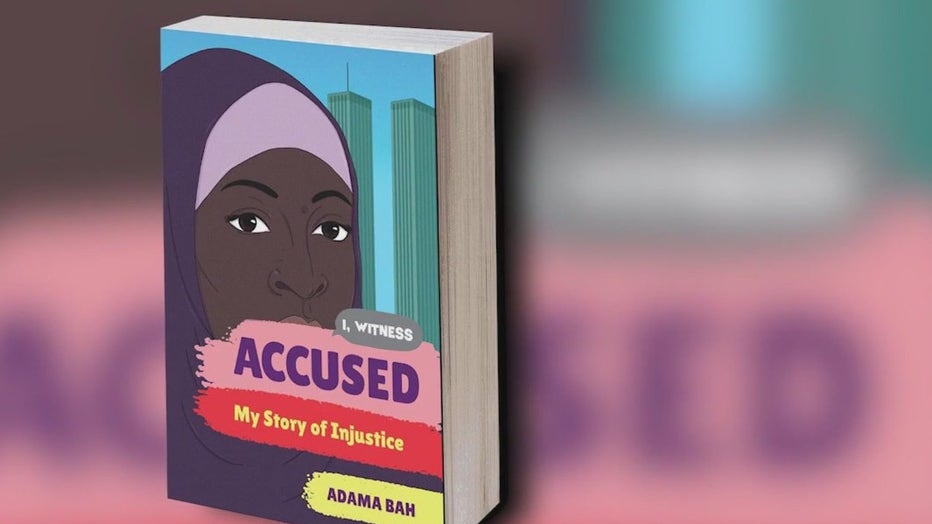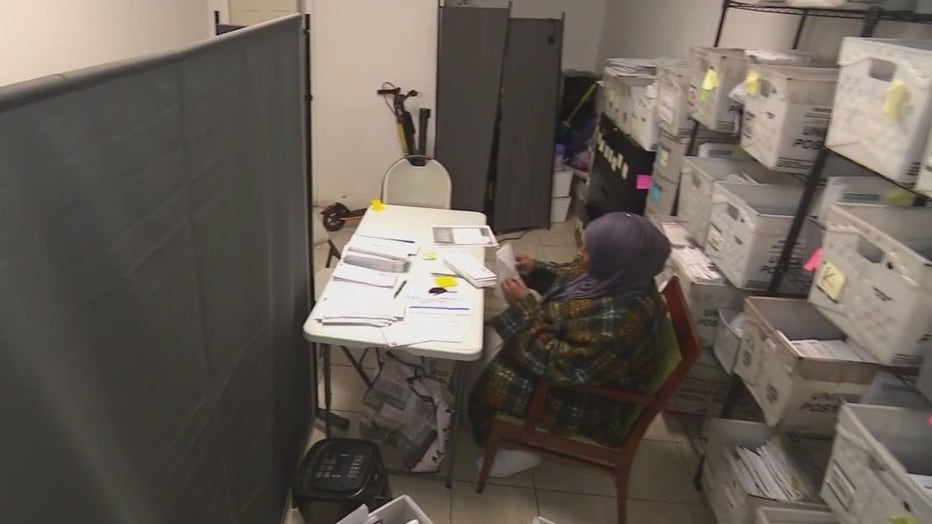African migrants seek help in Harlem | Migrants in America

African migrants seek help in Harlem | Migrants in America
In a small and humble office in Harlem, a former asylum seeker is doing what she can to meet growing needs in the West African community. FOX 5 NY's Stephanie Bertini shares her story.
HARLEM - Adama Bah runs a grassroots organization called Afrikana, which he also founded.
FOX 5 NY spoke with one of the men Bah is trying to help, who claims that political persecution forced him to flee from his home country of Guinea.
"They persecuted me in my country," the man said.
The U.S. Government has claimed that torture by security forces and abuse of women and children are "significant human rights issues" in the country.
The man said he is now seeking asylum in the United States, among the surge of migrants crossing the U.S./Mexico border and making their way to New York City.
"I traveled to Istanbul first after Istanbul. Bogota. I've got it from Colombia, Salvador and Guatemala, Honduras, Guatemala and Mexico before coming to the United States," he said. "I just come here for my friends who told me to come here … I really like it here. So I think New York City's a good city."
He's been in New York for less than six months, and he said he is slowly building a new life.
"Yeah, it's a bit difficult because we don't have no working permit. No Social," he said.
RELATED: NYC migrants share struggles in their own words | Migrants in America
It doesn't look like much from the outside, but Afrikana, is a lifeline for West African migrants like him.
"I'm a former asylum seeker myself. So I found out I was undocumented at 16, and that led me to my pathway up my immigration journey. So from asylum to green card to citizenship. But it took 16 years to become an American citizen," Bah said.
Bah said she knows firsthand how complicated immigration matters can be.
"It's confusing, but especially for black migrants," Bah said.
She says for migrants like the many from West Africa who are in her office daily, immigration issues are compounded by drastic linguistic, cultural and religious differences.
"For black migrants is harder because the anti-Blackness starts from South, their journey in South America. They are charged extra. They are looked at different. They don't speak the language. They don't understand the culture," Bah said.

Bah is an activist and also wrote a book recounting her experience. She has worked with disenfranchised communities for years.
Recently, responding to New York City's migrant crisis at the front lines meeting asylum seekers as they arrive and Afrikana she is doing whatever she can to help them transition to a life in America.
"The first thing we do is ID for you. There's no one that's going to rent an apartment to you if you're walking around with just immigration papers," Bah said.
After filing for asylum, migrants are eventually given work permits. The city has been housing many of them in more than 200 emergency shelters established during this migrant crisis. Newly rigid restrictions imposing limits on shelter stays are creating more hurdles, Bah said.
"There's no stable place for them. So how do they apply for asylum? How do they move out of the shelter system? How do they get their driver's license?" Bah said.
Now a makeshift mailroom is growing in the back office — that's because Bah allows asylum seekers to use the office address to get their mail.

At Afrikana, migrants also get help transitioning their children to school and with enrolling themselves in one important course, ESL school.
"The reason why we do that for black migrants is because if they don't speak Spanish or English, they have a huge disadvantage. All the services are in Spanish or English. So ESL school for you," Bah said.
Connections to medical services are provided here and what Bah calls case management.
She staffs her office with volunteers, most of them also migrants and asylum seekers.
"They're going to come to people that look like them for help. They're going to go to their houses of worship. They're going to go to a faith institution," Bah said.
Even though they feel like they are better off here, on this day this asylum seeker reminds us all what it feels like to miss home and Hom loved ones like family are irreplaceable.
"I'm really sad, I left my entire family," an asylum seeker said.
While its true many migrants for years have chosen New York City in search of that American Dream, what that means largely depends on their life experience.
FOX 5 NY's Stephanie Bertini asked what the American Dream means to him, and he said it's like "freedom".

